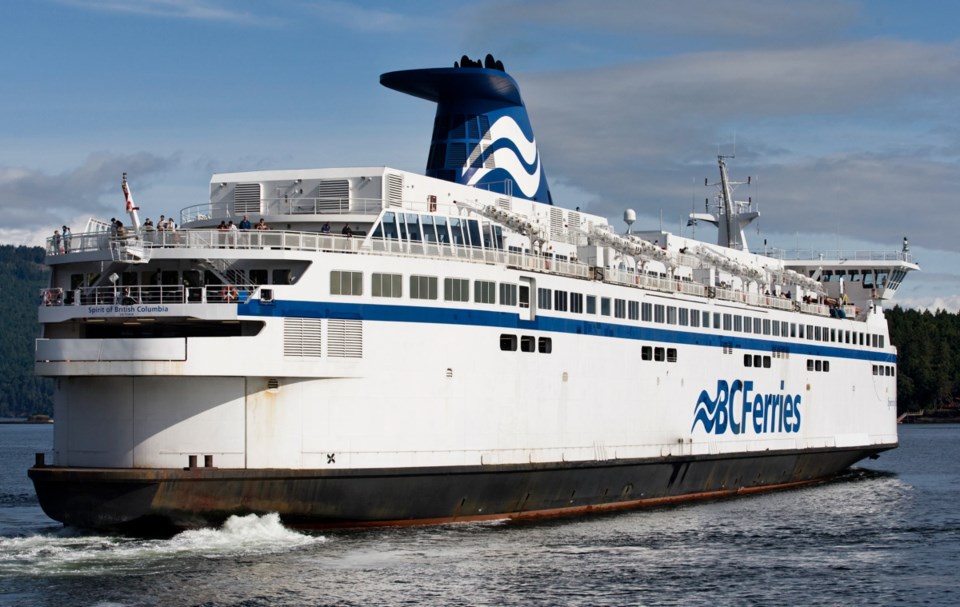More support for B.C.’s shipbuilding industry, the addition of spare vessels to the fleet, a commitment to reducing greenhouse-gas emissions and restructuring the retirement benefits for the chief executive officer are among 38 recommendations laid out in a ferry services review released Friday by the Ministry of Transportation.
The review, written by Blair Redlin and submitted to the government in June, also called for B.C. Ferries and the ministry to work better together. It said legislation should reflect the fact a publicly funded and regulated ferry service is in the public interest.
Transportation Minister Claire Trevena said the comprehensive report has tasked her staff to work on a long-term vision for the ferry system “and to connect coastal communities in a more integrated manner.”
Trevena released the report while announcing that the province will restore 2,700 round-trip sailings on 10 ferry routes that were cut in 2014.
“Quality, affordable ferry services are a necessity, not a luxury for people in coastal communities,” she said. “That’s why we’ve turned the ship around — first by rolling back ferry fares on small coastal routes, and now by reversing cuts to services that were making it difficult for people to get around.”
Four Vancouver Island routes are among the 10 affected by the service increase. They run between Crofton and Salt Spring Island, Port Hardy and Prince Rupert, Nanaimo and Gabriola Island, and Campbell River and Quadra Island.
The Redlin report, which concluded B.C. Ferries “is on the whole a well run company,” had recommendations for all parties involved in the system.
It called on the government to better support the shipbuilding and repair industry in B.C., and to “assess the potential costs and benefits to the B.C. economy each time B.C. Ferries builds or retrofits a vessel overseas.”
It recommended the government reject a proposal from the Canadian Ferry Association to eliminate the import duty on vessels repaired outside of Canada.
Of 11 new vessels added to the fleet since 2003 only two were built in B.C., the report said. The $140-million, mid-life retrofit of the B.C.-built Spirit Class vessels was done in Poland.
The report concludes the provincial economy is losing out by not building ferries at home. It cited a consultant’s report showing B.C. Ferries plans to invest $1.2 billion to build 14 new vessels. That could mean more than 4,900 jobs and a $1.7-billion impact on the B.C. economy if they were built here, the report said.
It also said the existing fleet is “insufficiently resilient” and that B.C. Ferries needs spare vessels available when a ferry is pulled out of service.
B.C. Ferries chief executive Mark Collins was unavailable for interviews Friday as the corporation was still digesting the report, but he said in a statement the corporation is anticipating meeting with the province to determine which recommendations they want to pursue.
Redlin concluded the post-retirement salary arrangement for Collins is “problematic.”
As it stands, the chief executive’s contract provides for continued employment as a consultant for at least a year after retirement to offer transitional advice to the new boss. The report notes that recently retired chief executive Michael Corrigan received an annual salary of $427,000 plus benefits after his retirement in 2017.
The recommendation is to instead offer departing chiefs a consultant’s contract with defined responsibilities.
The report calls for the establishment of an independent advisory council to provide system-wide advice, improvements in human resources to attract more women and Indigenous workers, and a requirement that B.C. Ferries meet provincial greenhouse-gas reduction targets.



